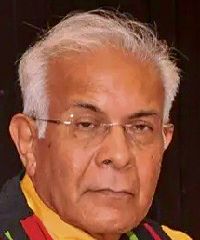Let’s not fail the voters of J&K
SO, the election results are out after much conjecture and wild guesses. The UT of Jammu and Kashmir (J&K) now has an elected Assembly. But as one commentator on a popular TV programme surmised, “What were all the promises about — including the promise of restoration of statehood?”, considering that the Vidhan Sabha is only a cipher with nominal authority. So, does the 2024 J&K election have any significance in the context of being part of the world’s largest democracy and given that this was the first Assembly poll since the state lost both its statehood and its supposed special status under the now-trashed Article 370 of the Constitution on August 5, 2019?
India and its natural constituent (J&K) acted as one entity in upholding democratic rights — to contest as well as to speak out.
This was also the first Vidhan Sabha election held after the extension of the notification of Scheduled Tribe (ST) status in February to the Muslim Rajput (Pahari) community, primarily residing in Poonch and Rajouri areas of the Jammu division with a scattering in Kashmir — nearly two years after the Delimitation Commission redrew constituencies and submitted its report in May 2022. The latter meant that 44 per cent of the population, which constitutes residents of Jammu, would vote in 48 per cent of the seats, while the 56 per cent living in Kashmir would exercise their franchise in the remaining seats. Yet, the election campaign was lively, even rowdy and redolent of the 1977 election, which returned a triumphant Sheikh Abdullah to power, roundly defeating a coalition led by none other than the Janata Party, the ruling party at the Centre led by then Prime Minister Morarji Desai. And this time, too, avowedly separatist and radical elements entered the fray, although under different entitles but not disavowing their stated agenda. One idiotic ‘leader’ called upon the winner to refuse to form the government. What then, one might ask the gentleman, was the purpose of fighting the election? This election, like the one held in 1977, has called for the restoration of the people’s dignity.
The 2024 poll results are as decisive as those of the 1977 election. What could be disconcerting is that all Hindu-majority seats have almost unanimously gone to the BJP. But the ruling party’s effort at polarising the tribal community worked decisively in favour of the National Conference (NC), the choice of most Kashmiris. On the eve of the election, I had spoken to an old friend from Sakhi Maidan, a Rajput village in ST-reserved Mendhar constituency in Jammu. He told me that he had given his word as a Rajput to the BJP leadership to vote for that party if ST status were granted. They had kept their word, he said, and now he must keep his. The Mendhar seat was won by Javed Ahmed Rana of the NC, which bagged six ST-reserved seats, with the Congress getting one, Independents (likely to join the NC-Congress coalition) two and the BJP none. There is then no polarisation in the support base of any party except the BJP. Does the party need to review its appeal?
Yet, the big question remains: With the Vidhan Sabha being an organism with little authority, what is all the fuss about? The CM-designate, Omar Abdullah, has already given a call for the restoration of statehood, but there is little doubt that his election to the position will not give him the authority to deliver on this demand. Nevertheless, the enthusiasm generated, the debate and discussion and the interest aroused in this election across the country, crowned by the widespread participation in the process by all sections of the population — be it in Jammu or Kashmir — carry their own lessons. The most noteworthy of these is that India and its natural constituent (J&K) clearly acted together as one entity in upholding democratic rights — to contest as well as to speak out. Is that not the common aspiration of every Indian? Should this not be recognised inasmuch as also the dream of every Kashmiri?
The economic and political challenges facing the people of J&K, which they share with the nation, are common knowledge. Omar has identified these in outlining the tasks that he has set for himself. Economic amelioration amid rising inflation, education and healthcare, gender equality, all working together in what is constitutional decentralisation, harnessing public mobilisation through panchayati raj — these are all common aspirations. The people have passed through decades of suffering and violence. The victorious alliance has shown its sensitivity to these issues in its manifesto. Are we going to allow them to deliver? The voters of J&K have given their voice to joining a national aspiration. But what they have also said loud and clear is that they want to do this themselves and not forcibly through an authoritarian hand. Let us not fail them.









